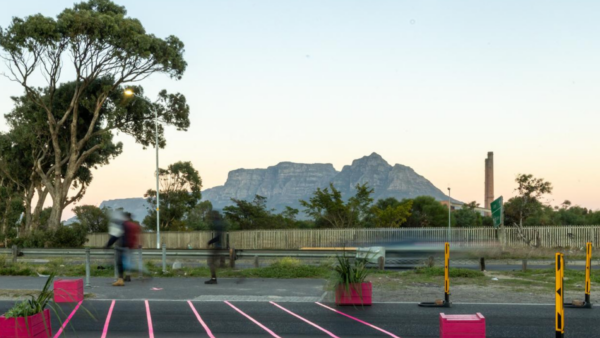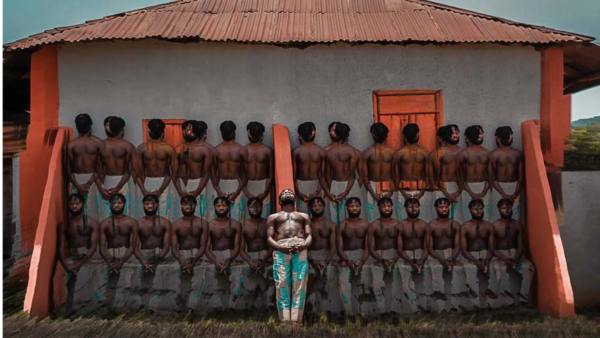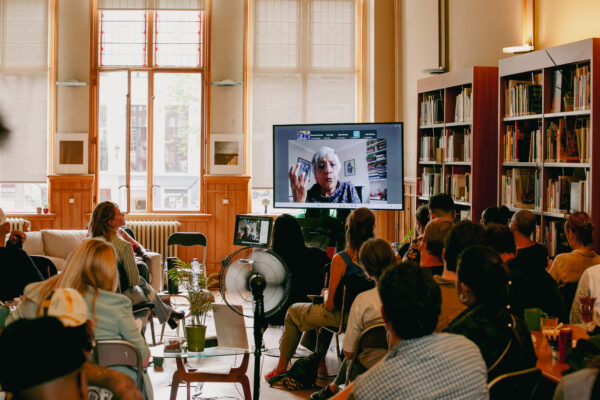

Open Call Resilient Communities / Inclusive Cities / Just Societies – 11 projects selected
The Creative Industries Fund NL has selected 11 projects for the Open Call Resilient Communities / Inclusive Cities / Just Societies. Programme manager Internationalization Mireille de Koning reflects on the selection.
With the Open Call Resilient Communities / Inclusive Cities / Just Societies, the Fund aims to connect the creative industries in the Netherlands and in countries on the African continent and to support equitable approaches to global challenges, collaboration and exchange. In collaboration with one or more partners in countries in Africa, designers, makers, architects, collectives, platforms and cultural organizations based in the Netherlands were asked to examine and address current themes and issues that relate to the growing city, its surroundings and the communities that live there.
general impression
The applications represent a diversity of themes and topics. They provide insights into social, economic and ecological dynamics at play within cities on the African continent in relation to the theme of the open call, and bring to the fore clear analyses of the local context and (urgent) needs. In some cases, the collaboration between the project partners is still in a very early stage. But all the selected projects have closely involved partners and local communities in the development of the proposed plan of action and activities. Cultural sensitivity and a humble position of the Netherlands-based partners in relation to the project context was considered important by the advisory committee assessing the applications.
selection
The 11 selected projects each have different objectives and approaches, and are focused on strengthening local communities in relation to public spaces, or with regard to social inclusion or in relation to nature and ecological challenges.

local communities and public spaces
The project Decoding the informal city by Dutch design and research studio AP+E and Egypt-based design platform CLUSTER aims to create local interventions for the public domain. They will work with the community in Ard al-Liwa, one of the largest informal neighbourhoods to the west of Cairo where the streets are too narrow for emergency vehicles designed for streets in ‘planned’ parts of the city. The aim is to develop prototypes for micro-emergency vehicles that respond to the specific economic and spatial context of the neighbourhood. With IN-FORM-ALL, Afaina de Jong (Netherlands) and Tshegofatso Mako, Tapiwa Manase, Iyo Bisseck and Khensani Jurczok-de Klerk (South Africa) are working on an open interactive community archive that will assemble existing local economic projects and ‘counterpublics’ in the central business district in Johannesburg. Against the backdrop of absent public service provision and black life displaced by urban development, these resilient systems offer alternative local economies and sites of assembly that provide important spatial intelligence.

local communities and social inclusion
Social inclusion is at the heart of a number of selected projects in different ways. Although there has been a growing movement for LGBTQ+ rights in Ghana in recent years, discrimination against LGBTQ+ individuals remains a major problem in the country. With Accra Zine, Dutch studio Cookies, cultural producer Abraham Tettey and artist Efia Serwah aim to set up a platform in the form of a magazine to provide a space for artistic expression of the queer community in Accra. The Solar Craft Hub strengthens the position of craftswomen from the Tsonga community on the Linga Linga peninsula in Mozambique. For this project by Studio Pauline van Dongen, Bureau Ruimtekoers and Studio Pahla, the women collaborate with other artisans and develop products that bring together their craft of palm-leaf weaving and solar technology.
Women are also at the heart of the Kalibu project. Together with local makers and communities, Burundi-born and Netherlands-based young makers Ornella Gringo, Yves Saidi, Arantxa Catriona Oosterwolde and Arnold Arakaza will set up a community centre in the Burundian city of Bujumbura that will provide space for women and girls to come together and learn from each other. In Regenerative Fashion Community Campus in Kenya by Dutch studio Site Practice and Kenyan clothing manufacturer Labl, a radically innovative method of fashion production takes centre stage. The project is prompted by the polluting nature of the clothing industry and the fact that the vast majority, 85%, of people working in this industry worldwide are women. The social design project Jossour program by Dutch cultural organization (A)WAKE, Tunisian platform Shouka and Moroccan learning platform Undercurrents explores the power and potential in the relationship between the ‘diaspora’ residing far from the country of origin and the communities living there. The Shadow of the Moon is a project by the Moroccan LE 18 and QANAT, Dutch artist Jeanne van Heeswijk and Ungovernable from South Africa, and maps out practices of resistance and solidarity in Marrakech, Johannesburg and Rotterdam that have emerged in times of change, uncertainty and crises.

local communities and ecological challenges
Several projects also focus on how local communities deal with nature conservation and the effects of the climate crisis. In Qursaya Island, Taller Architects, Olivier de Gruijter, Marwan Rasmy and Hatem S. Hamdy aim to research the strategies of the local community to protect the small Egyptian island from various external threats. With Anthropocene Museum 10.0: Waters of Ol Doinyo Nyukie, Slow Research Lab (Netherlands) and Cave_bureau (Kenya) aim to develop a site-specific design intervention for a system of water catchment and storage on Mount Suswa, a dormant volcano 125 km west of Nairobi. The aim of the project is to mitigate challenges of climate change in the region with traditional knowledge and in collaboration with Maasai communities. The project Water Cycle Storiesrevolves around the water challenges and water insecurity faced by small island communities due to mass tourism and the climate crisis. By visualizing traditional off-grid rainwater-harvesting systems and practices, project partners Suzanne Loen, Kenniscentrum Immaterieel Erfgoed Nederland (KIEM), Immaterieel Erfgoed Bonaire (IEB) and Sarra Ben Youssef aim to work with island communities in Djerba (Tunisia) and Bonaire (Caribbean Netherlands) to highlight and record almost-forgotten water traditions.
Read more about the selected projects here.
assessment
The applications were assessed by advisers Ama van Dantzig, Arthur Steiner and Zico Lopes. This committee considered and assessed the submitted proposals within the framework of the Fund’s Open Call Grant Scheme and on the basis of the criteria from the open call:
- the relevance of the chosen theme within the context of the open call;
- the planned approach;
- the structure of the collaboration.
numbers
A budget of € 300,000 was available for the Open Call Resilient Communities / Inclusive Cities / Just Societies. From the 47 applications assessed, 11 proposals were selected. This brings the percentage of applications being awarded grants to 23%. The maximum contribution per proposal was € 30,000. The assessment of the open call took the form of a tender: this means that, within the available budget, a number of proposals are prioritized over other submissions. Only projects with a positive assessment are supported.
follow-up
Keep an eye on the Fund’s website, newsletter or social-media channels to be informed of any follow-up to this open call.
Photo at the top: Regenerative Fashion Community Campus in Kenya







